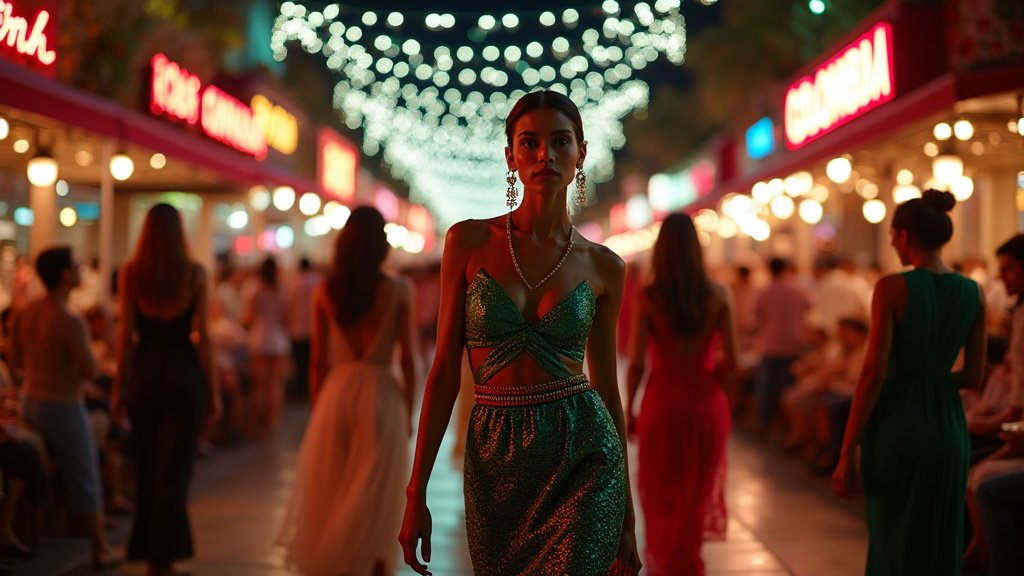Maison Laurent Unveils ‘Cognitive Couture,’ Charting a New Course for Luxury Design with Advanced AI
Paris, France – Luxury fashion house Maison Laurent has sent ripples through the global fashion industry with the formal launch of its ambitious ‘Cognitive Couture’ initiative. Announced on June 9, 2025, the program signals a profound commitment to integrating advanced artificial intelligence technologies across the entirety of its storied design process. This move positions Maison Laurent at the forefront of a technological evolution within the exclusive realm of haute couture and luxury ready-to-wear.
The ‘Cognitive Couture’ Framework: A Deep Dive into AI Integration
The ‘Cognitive Couture’ framework is designed not merely as a superficial technological overlay but as a fundamental shift in how garments are conceived, developed, and presented. Maison Laurent has detailed several key areas where advanced AI will be actively deployed:
Firstly, in concept generation, AI algorithms will be utilized to analyze vast datasets of fashion history, artistic movements, cultural trends, and even material properties. The aim is to assist design teams by providing novel inspirations, suggesting unexpected combinations of styles or silhouettes, and identifying emerging aesthetic patterns that might inform future collections. Rather than replacing human creativity, the house states this application is intended to serve as a powerful co-creative tool, expanding the imaginative possibilities available to designers.
Secondly, AI will play a crucial role in material selection analysis. This involves sophisticated algorithms evaluating the properties of different textiles, fibers, and embellishments. Analysis will extend beyond aesthetic qualities to include performance characteristics, sustainability credentials, ethical sourcing, and even logistical considerations like supply chain availability and durability. This application promises to streamline the often complex process of sourcing and validating materials, ensuring choices align with Maison Laurent’s quality standards and evolving corporate responsibility goals.
Thirdly, a significant focus of ‘Cognitive Couture’ is on developing personalized client experiences. Leveraging AI, Maison Laurent aims to enhance its bespoke services and client interactions. This could range from AI-powered tools assisting with custom fitting and virtual try-ons to sophisticated algorithms analyzing client preferences and purchase history to offer highly curated recommendations or personalized design consultations. The goal is to create a more intimate, responsive, and unique relationship with each client, setting a new benchmark for luxury service in the digital age.
Maison Laurent’s Vision: Enhancing Creativity and Efficiency
Maison Laurent representatives have articulated a clear vision for the initiative, claiming that the integration of advanced AI will simultaneously enhance creativity and efficiency within the house. They argue that by automating or accelerating repetitive tasks, providing data-driven insights, and acting as a wellspring of inspiration, AI will free up designers and artisans to focus more deeply on the purely creative and skilled aspects of their work. The efficiency gains are expected to optimize resource allocation and potentially shorten development cycles, allowing the house to be more agile in responding to market demands without compromising the meticulous craftsmanship synonymous with the brand.
Industry Reaction and Discussion: Craftsmanship in the Age of AI
The announcement of ‘Cognitive Couture’ has predictably sparked widespread discussion within the industry. While some hail the move as a necessary and exciting evolution, others express caution and concern. The primary point of contention revolves regarding AI’s impact on traditional craftsmanship. Critics ponder whether the introduction of algorithms into the creative core risks diluting the human touch, intuition, and artisanal skill that define luxury fashion. There are debates about the future role of petites mains (the skilled craftspeople), the preservation of heritage techniques, and the very definition of ‘handmade’ or ‘couture’ in an era where AI assists or influences design decisions.
Conversely, proponents argue that AI can be a powerful tool for preserving craftsmanship by identifying and documenting complex techniques, optimizing material use to reduce waste (a key concern in traditional processes), and even creating new possibilities for intricate designs that were previously too complex or time-consuming to attempt. The discussion is nuanced, reflecting the inherent tension between embracing technological progress and safeguarding the values of heritage and human artistry that underpin the luxury sector.
Analyst Perspective: A Pivotal Moment for AI in Luxury Fashion
Industry analysts have quickly weighed in on Maison Laurent’s move, with many viewing it as a pivotal moment for AI adoption in luxury fashion. For years, technology’s role in luxury was primarily focused on e-commerce, digital marketing, and supply chain management. ‘Cognitive Couture’ represents a significant step change, moving AI into the core creative and client-facing processes that define luxury value.
Analysts suggest that if Maison Laurent successfully demonstrates enhanced creativity and efficiency alongside preserved or even elevated quality and client experience, it could set a precedent for other luxury brands. The initiative is being watched closely as a potential case study for how high-end sectors, traditionally resistant to rapid technological disruption in their core craft, can strategically integrate AI to drive innovation while maintaining exclusivity and desirability. The success or challenges faced by ‘Cognitive Couture’ are expected to heavily influence the pace and nature of AI integration across the broader luxury goods market in the coming years.





